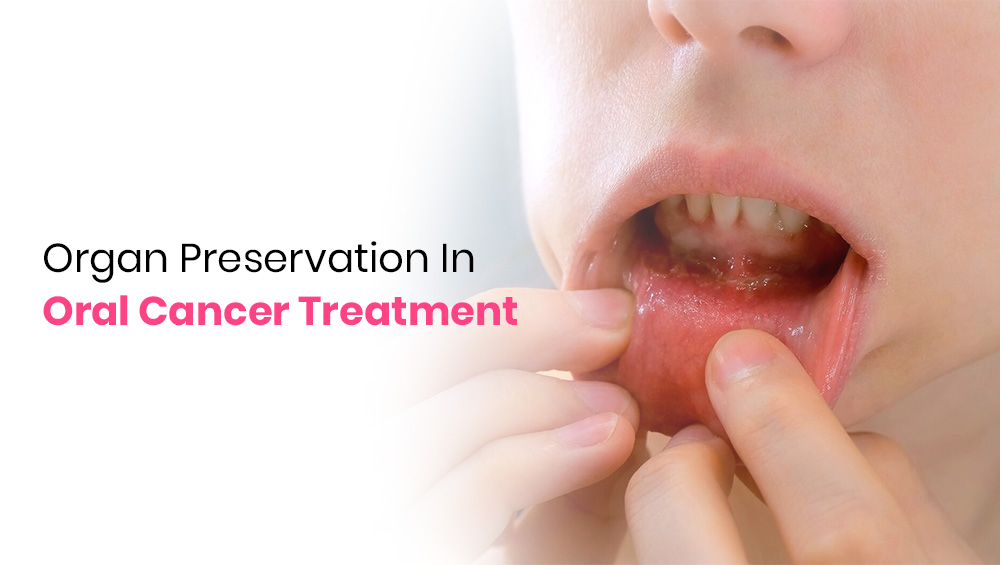Oral cancer is a life-changing diagnosis; however, through the advancement of medical science, treatments are now available that not only treat the disease but also focus on preserving structures which are crucial. Organ preservation in oral cancer treatment is one approach that has been used at times to effectively treat cancer without sacrifice of important functions to the extent that speech, swallowing, and aesthetics may be impacted.
This approach emphasizes patient-centered care and aims for optimal cancer control without compromising the quality of life. Combining procedures such as minimally invasive surgery, radiation therapy, and chemotherapy can ensure effective treatment of cancer while preserving oral structures' integrity.
In this blog, we’ll delve into how organ preservation strategies work, their benefits, and why they are becoming a preferred choice in oral cancer management. Whether you’re a patient or a caregiver, understanding these advancements can provide hope and clarity during challenging times.
Whole Organ Preservation Process in Oral Cancer Treatment
Organ preservation in oral cancer treatment focuses on removing or controlling cancer while maintaining the structure and function of vital oral tissues. This approach is especially significant for patients, as the oral cavity plays a crucial role in speech, swallowing, and appearance. Preserving these functions enhances the patient’s quality of life and boosts post-treatment recovery.
Techniques Used in Organ Preservation
- Minimally Invasive Surgery: Advanced surgical methods, like transoral laser surgery or robotic-assisted surgery, target and remove the tumor with precision, leaving surrounding healthy tissues intact.
- Radiation Therapy: Used either alone or in combination with surgery, modern radiation techniques like IMRT (Intensity-Modulated Radiation Therapy) deliver targeted doses to minimize damage to healthy tissues.
- Chemotherapy and Immunotherapy: Administered alongside radiation (chemoradiation) or as standalone therapies, these options help shrink the tumor and control cancer spread without the need for extensive surgery.
Benefits of Organ Preservation
- Functional Integrity: Retains the ability to speak, chew, and swallow with minimal disruption.
- Aesthetic Outcomes: Preserves facial structures, reducing the need for extensive reconstructive surgery.
- Faster Recovery: Minimally invasive approaches often result in shorter hospital stays and quicker return to daily activities.
When is Organ Preservation Recommended?
Organ preservation is most effective for patients diagnosed with early to moderately advanced stages of oral cancer. In these cases, the tumor is often localized and has not extensively invaded surrounding tissues or structures. A comprehensive evaluation by a multidisciplinary team—which may include oncologists, surgeons, radiologists, and speech therapists—is essential to determine the feasibility of organ-preserving treatment.
Key factors considered in recommending organ preservation include:
- Tumor Size and Location: Smaller tumors, or those situated in areas where critical functions can be preserved, are ideal candidates.
- Extent of Cancer Spread: If the cancer has not metastasized or invaded critical structures, organ-preserving techniques are more likely to succeed.
- Patient’s Overall Health: Patients with good overall health and adequate immune function are better suited for these advanced treatments.
- Functional Impact: The likelihood of maintaining essential functions like chewing, swallowing, and speaking is carefully weighed before opting for organ preservation.
In situations where organ preservation is not viable, advanced reconstructive surgery following cancer removal can restore the form and function of the affected areas, ensuring patients regain as much normalcy as possible.
The Transformative Role of Organ Preservation
Modern techniques, such as minimally invasive surgery, precision radiation therapy, and tailored systemic treatments, enable doctors to target cancer cells effectively while sparing healthy tissue. This integrated approach not only controls the disease but also supports patients’ physical, emotional, and social well-being.
By focusing on preserving essential functions and aesthetics, organ preservation in oral cancer treatment is revolutionizing the patient care experience, balancing life-saving interventions with quality-of-life considerations. This paradigm shift underscores the commitment of medical science to not just treat cancer but also ensure a dignified and fulfilling life for survivors.
Dr Pooja Babbar - Expert Medical Oncologist
Dr. Pooja Babbar is dedicated to being an especially committed medical oncologist, focused on the pursuit of unique, compassionate, and expert care for patients dealing with cancer. More than a decade in her mission, she has treated thousands of patients with leading-edge therapies ranging from chemotherapy to immunotherapy and targeted treatments.
Her patient-first approach ensures tailored treatments that make personalized interventions possible, addressing not only the disease but also emotional and psychological well-being of her patients. From complex cases to precision oncology solutions, Dr. Babbar continues to inspire confidence in her patients' journey to recovery.
With a passion for advancing cancer care and a proven track record, Dr. Pooja Babbar is a trusted partner in the fight against cancer. Book a oncusltation to know more!!














